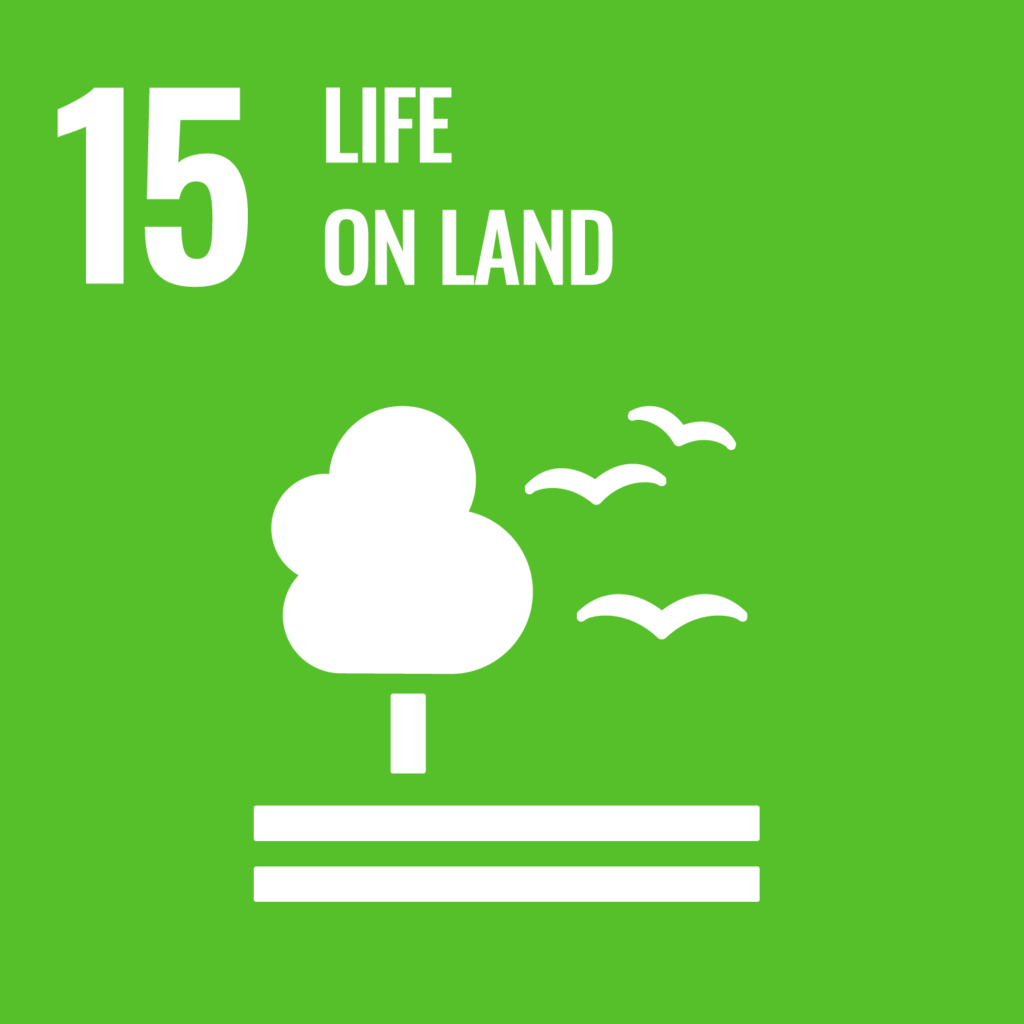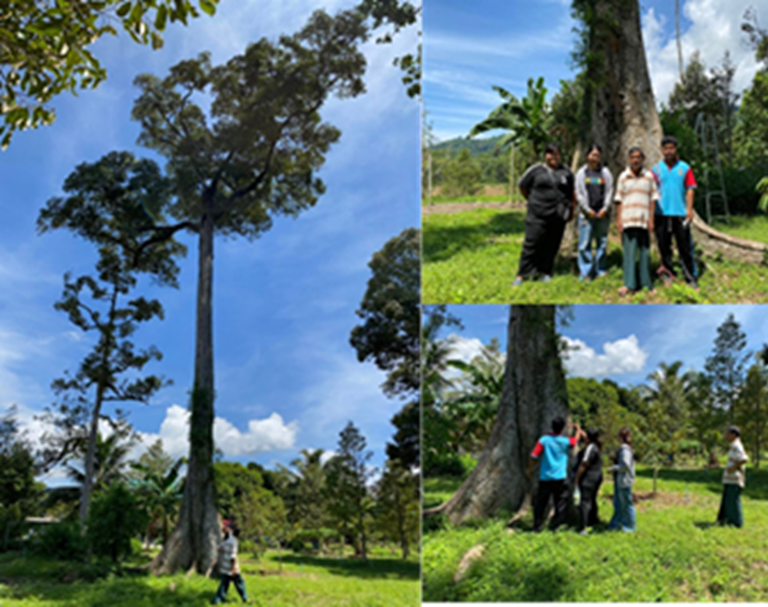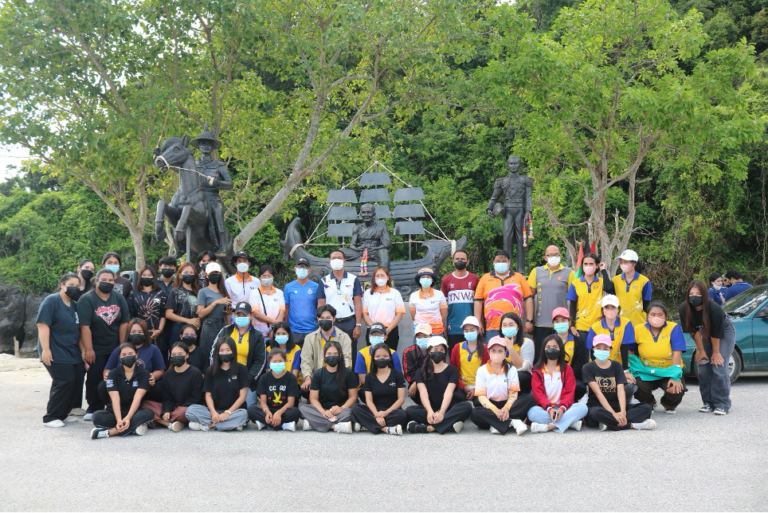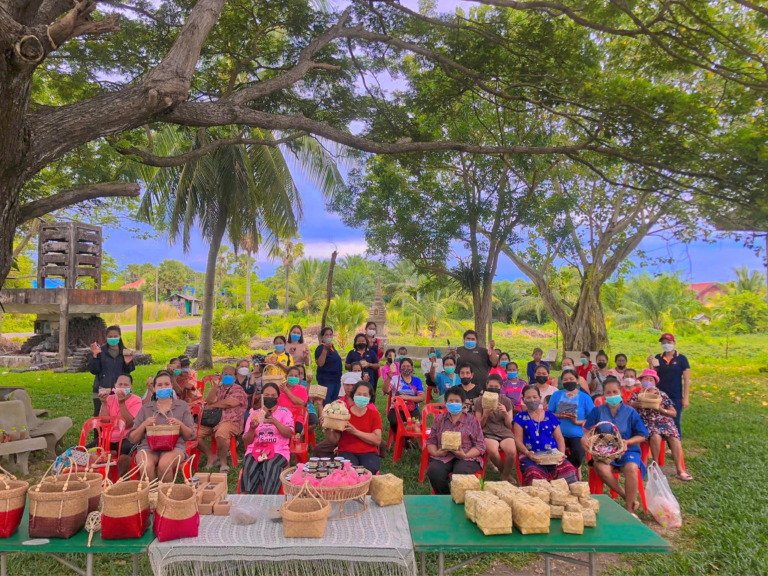Reporters: Assoc.Prof.Dr. Pornsil Seephueak
Asst.Prof.Dr. Prapot Maliwan
Asst.Prof.Dr. Nion Chirapongsathonkul
Dr. Worawitoo Meesook
Evidence Date: February – December 2022
Related SDGs:

Related Indicator: Indicator 15.2.1
Details (English):
RUTS actively advocates for sustainable land use by inspiring scientists and researchers to focus on the preservation and responsible exploitation of land, indigenous flora, fauna, and natural resources. In recognition of their contributions, several researchers from RUTS were awarded grants from the Plant Genetic Conservation Project under the Royal Initiative of Her Royal Highness Princess Maha Chakri Sirindhorn (RSPG) during the fiscal year 2022 (October 2021 – September 2023). The ultimate goal of RSPG is to develop the personnel and plant genetics resources for the maintenance of plant varieties, and for the development to be advantageous for the farmer and business section of the country. The initiative of the project encompasses the pristine natural forests and disseminates plant specimens across the entire country, spanning all floral regions beyond the Royal Forest Department’s jurisdiction. These plants are supplied to government bodies, research institutions, experimental stations, academic organizations, schools, temples, and any other communal areas where residents or villagers congregate to safeguard plant genetics. Furthermore, this endeavor encompasses activities related to plant clone exploration, registration, and coding, as well as research in plant biology and related fields. It also involves the active support and encouragement of village volunteers. Safeguarding natural forests is essential for the preservation of plant genetic diversity, ensuring the long-term availability of valuable natural resources. Therefore, one of the research paths the researchers focus on is finding out the indigenous plant species that are suitable for each plantation area.
Asst.Prof.Dr. Sakurat Hansuk and the research team has worked on the project “Production of Durian Stock in Nakhon Si Thammarat Province for Disease Resistance of Phytophthora palmivora (Butler)”. P. palmivora is the pathogen causing a huge loss of durian production. Gardeners use chemical substances and fungicides to manage durian diseases caused by this pathogen, resulting in the degradation of the affected area. Prolonged and continuous chemical usage renders the land unsuitable for future cultivation. This necessitates the search for new cultivation areas, which may involve encroaching upon forests or forested areas.
From April 23 to 25, 2022, the researchers conducted a survey of durian varieties and screened for naturally resistant strains of wild durian against the pathogenic bacteria. This survey took place across three different areas within Nakhon Si Thammarat Province. The highly resistant wild strains will be selected for use as rootstock in future endeavors.
In conclusion, cultivating appropriate plant varieties for a particular region not only enhances productivity and optimizes land usage but also fosters sustainability for both the area and its residents. As a result, those who can make efficient use of the land without causing disruption to natural habitats won’t resort to clearing wild lands for agricultural expansion.
Related Links:




